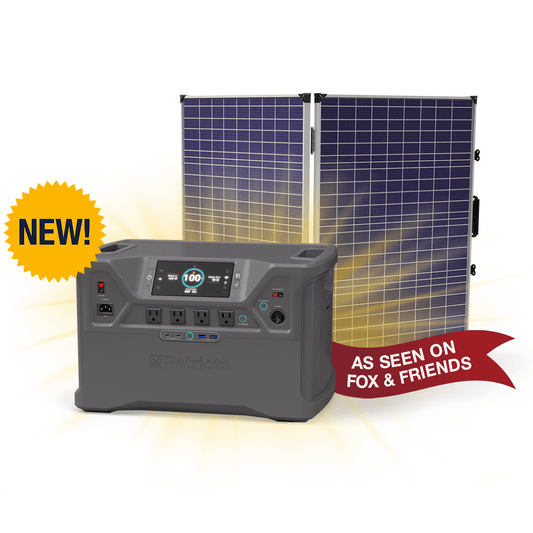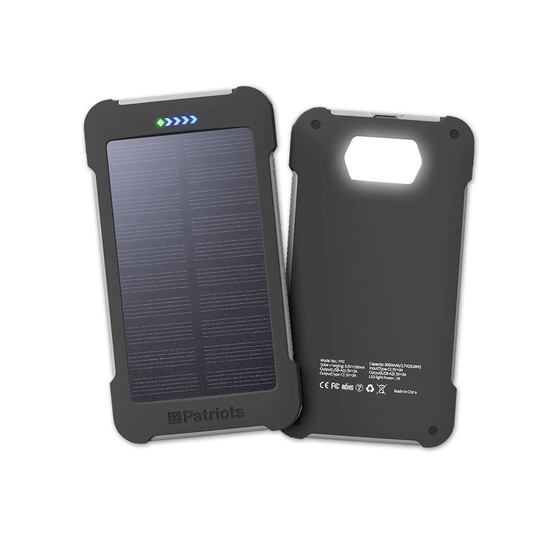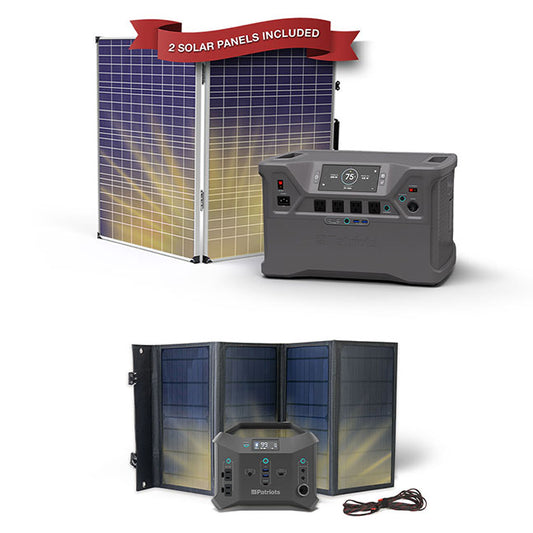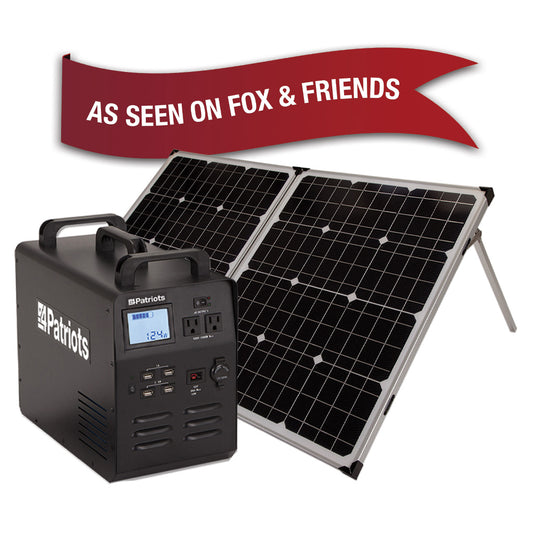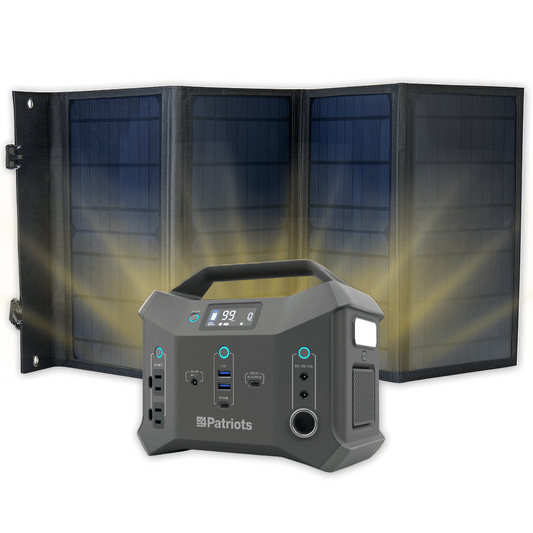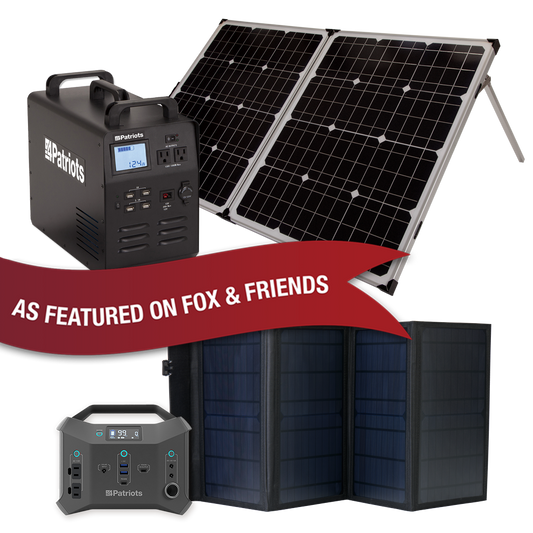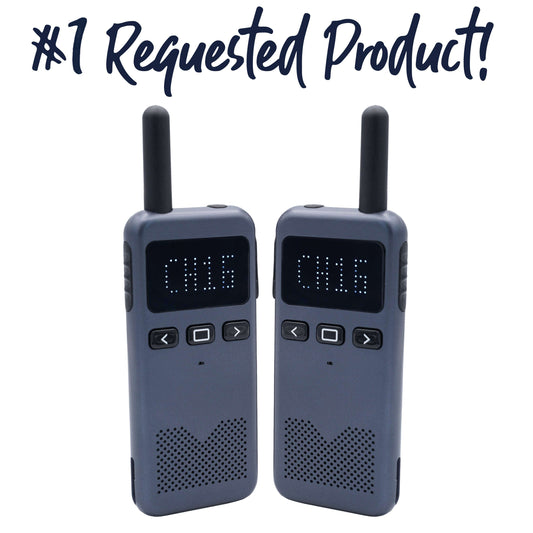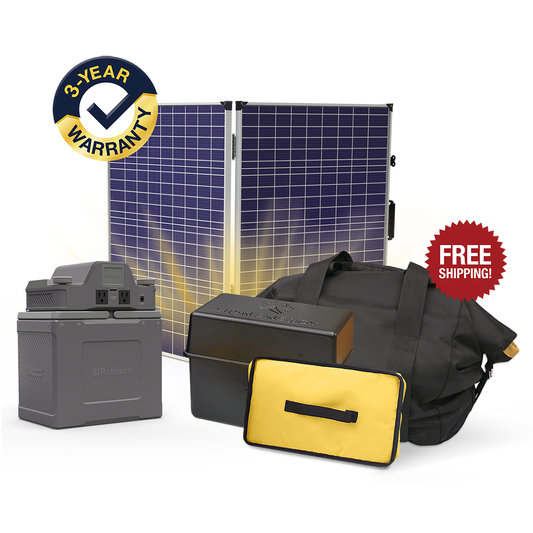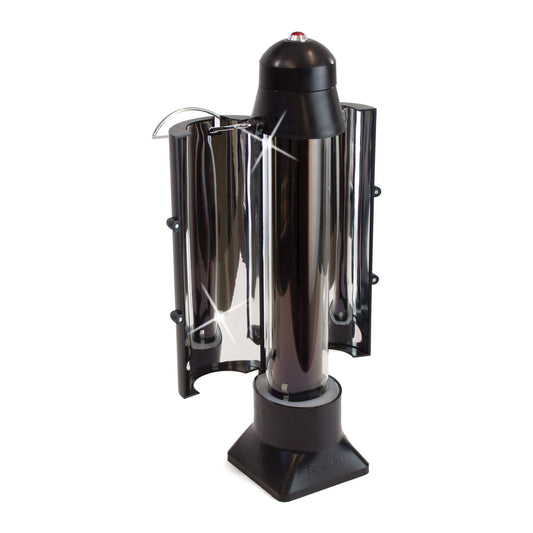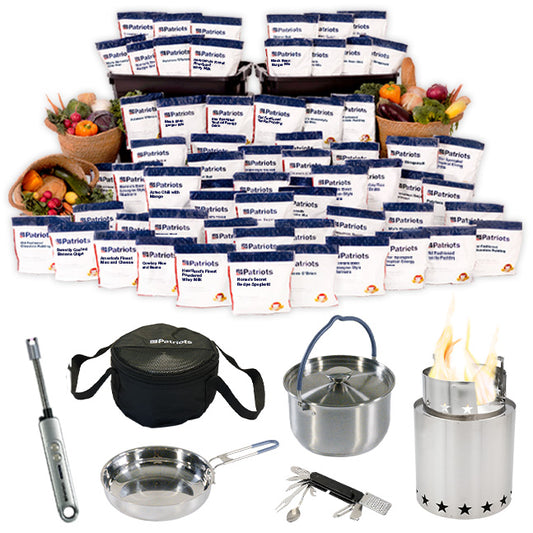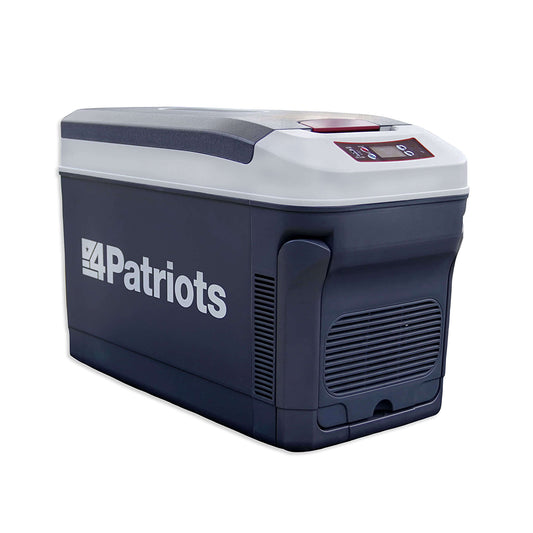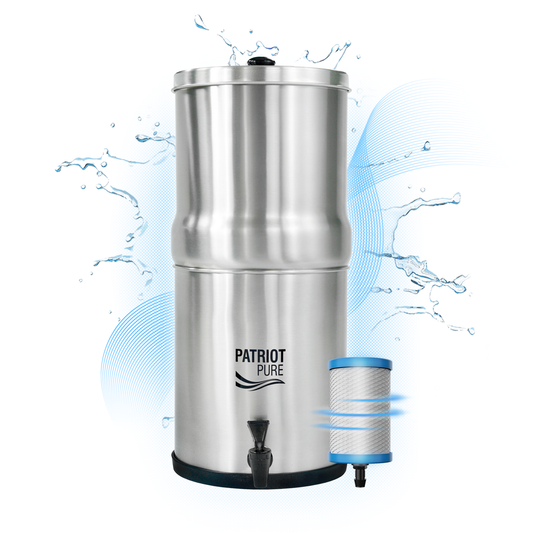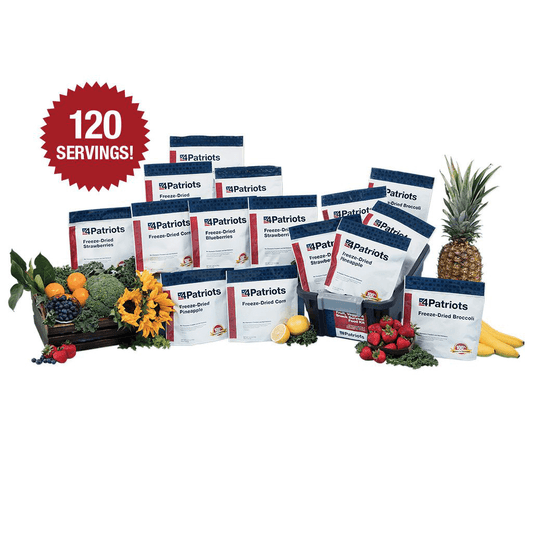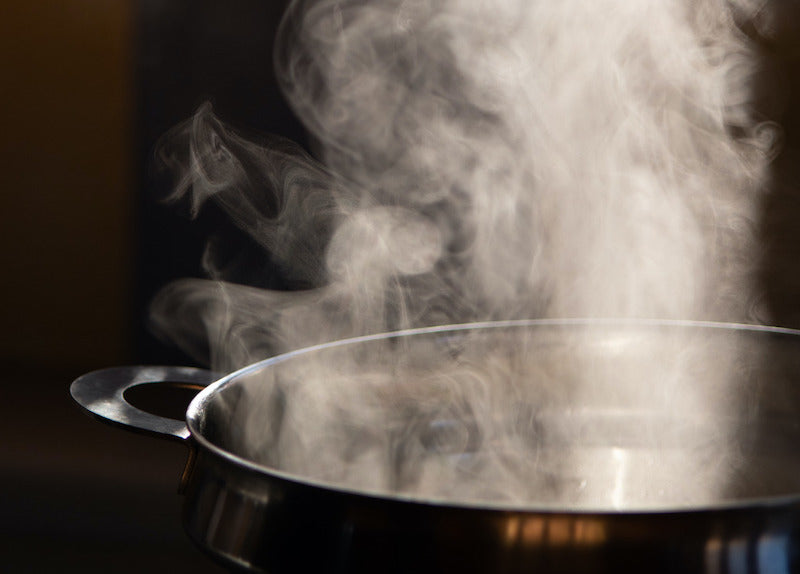
5 Ways to Boil Water Without Electricity

At one time or another, you’ve probably experienced a boil order in your town or village.
This happens when a municipality or local health agency tells residents to boil their water before consuming it.
These public health alerts are issued when a community’s drinking water is – or might be – contaminated by pathogens.
This could occur due to routine maintenance at water plants or construction. Or it could be from damage to, or leaks in, pipes from a storm.
At home or in the wild
If you’re home and the electricity is working, this is not a big problem. It’s merely a minor inconvenience. You just boil water on your electric stovetop or in a microwave oven until the alert expires.
But what if you’re home and the power is out? Or what if you are away from home or out in the wild after evacuating?
Either way, you should know a variety of ways to boil water that don’t require electrical power.
Because there is nothing more important than having clean drinking water. And having hot water is essential for cooking.
In a fireplace
Today I want to talk about five ways to boil water without electricity, starting with two ways to do this at home.
If you have a fireplace, this should be relatively easy. Once you’ve got a good fire going, fill a pot with water and position it over the flames.
Once the water has been boiling for several minutes, remove the pot and let it sit for a few more minutes.
You can then use this water for drinking, bathing, cleaning or whatever you want to do with it. If you have it, a wood stove would serve the same purpose as a fireplace for this task.
On a gas stove
Some people believe that if the power is out, their gas stove won’t work. The reality is, only the igniter runs on electricity.
So, if you have a match or lighter handy, you can easily start up a gas stove burner by simply turning the knob and holding the fire next to the burner.
Gas will flow without any electricity to help it along. Boiling water is as simple of a task as it normally is.
In fact, you can make an entire stovetop meal while you’re at it. You won’t be able to use your oven or microwave oven, but the burners on a gas stove should work just fine.
Over an open flame
If you’re outdoors with no access to electricity, the simplest way to boil water is over an open fire. This is virtually identical to the fireplace method. But building a fire can be more challenging outdoors than indoors.
The main factors here are how dry the wood is that you use for the fire and your fire-starting methods. Wet and/or windy weather can also present a problem.
Assuming you’re able to conquer those issues, keeping a pot of water over an open flame should give you the hot water you need for cooking, coffee or other uses.
If you can’t keep a pot of water above the flames, place rocks in the fire. Once they are very hot, remove them with tongs and place them in your pot of water.
In a camp stove
A camp stove is another good way to boil water for a variety of uses. Some of these stoves are large, two-burner propane stoves you can find at a campground.
Other camp stoves are so compact that you can fit them in a bug-out bag. This is the safer option, as you might not know where you’ll be if you have to bug out. Or whether a campground stove will be available.
A portable, lightweight camp stove is a bug-out must for many people. And the options are many.
Unpressurized stoves use solid or liquid fuel that is placed in the burner before ignition. Other stoves use a volatile liquid fuel in a pressurized burner. Other options are bottled gas stoves and gravity-fed “spirit” stoves.
Solar cooker
If you have sunlight, you can use a solar cooker to boil water you need for drinking and cooking.
Often in the shape of a thermos, these solar cookers operate by trapping the rays of the sun with parabolic mirrors.
This focuses the sun’s energy on a tempered glass tube that can heat water to 212 degrees Fahrenheit.
Solar cookers are compact and lightweight, but are built tough. You can even carry them in your backpack.
Practice makes perfect
It’s good to have knowledge about how to boil water without electricity. It may come in handy someday.
But it’s even better if you can practice these methods before a major problem makes them a necessity.
If you already have experience boiling water without electricity in a variety of ways, it will give you peace of mind.
So, make it a family thing. You can even do it in the backyard some day. You can have fun while teaching others this important survival skill.
Featured Products
- Regular price
- $699.95
- Regular price
-
- Sale price
- $699.95
- Unit price
- per
- Regular price
- $2,999.95
- Regular price
-
- Sale price
- $2,999.95
- Unit price
- per
- Regular price
- From $29.95
- Regular price
-
- Sale price
- From $29.95
- Unit price
- per
- Regular price
- $3,499.95
- Regular price
-
- Sale price
- $3,499.95
- Unit price
- per
- Regular price
- From $29.95
- Regular price
-
- Sale price
- From $29.95
- Unit price
- per
- Regular price
- $2,499.95
- Regular price
-
- Sale price
- $2,499.95
- Unit price
- per
- Regular price
- $499.95
- Regular price
-
- Sale price
- $499.95
- Unit price
- per
- Regular price
- $999.95
- Regular price
-
- Sale price
- $999.95
- Unit price
- per
- Regular price
- From $29.95
- Regular price
-
- Sale price
- From $29.95
- Unit price
- per
- Regular price
- $2,999.95
- Regular price
-
- Sale price
- $2,999.95
- Unit price
- per
- Regular price
- From $2,796.95
- Regular price
-
$8,390.95 - Sale price
- From $2,796.95
- Unit price
- per
- Regular price
- $4,999.95
- Regular price
-
- Sale price
- $4,999.95
- Unit price
- per
- Regular price
- From $129.95
- Regular price
-
$259.95 - Sale price
- From $129.95
- Unit price
- per
- Regular price
- $847.95
- Regular price
-
$897.95 - Sale price
- $847.95
- Unit price
- per
- Regular price
- $1,999.95
- Regular price
-
- Sale price
- $1,999.95
- Unit price
- per
- Regular price
- $279.95
- Regular price
-
- Sale price
- $279.95
- Unit price
- per
- Regular price
- From $69.95
- Regular price
-
- Sale price
- From $69.95
- Unit price
- per
- Regular price
- $29.95
- Regular price
-
- Sale price
- $29.95
- Unit price
- per
- Regular price
- $849.95
- Regular price
-
- Sale price
- $849.95
- Unit price
- per
- Regular price
- $249.95
- Regular price
-
- Sale price
- $249.95
- Unit price
- per
- Regular price
- $199.95
- Regular price
-
- Sale price
- $199.95
- Unit price
- per
- Regular price
- $129.95
- Regular price
-
- Sale price
- $129.95
- Unit price
- per
- Regular price
- $114.95
- Regular price
-
- Sale price
- $114.95
- Unit price
- per
- Regular price
- $69.90
- Regular price
-
- Sale price
- $69.90
- Unit price
- per
- Regular price
- $19.95
- Regular price
-
- Sale price
- $19.95
- Unit price
- per

